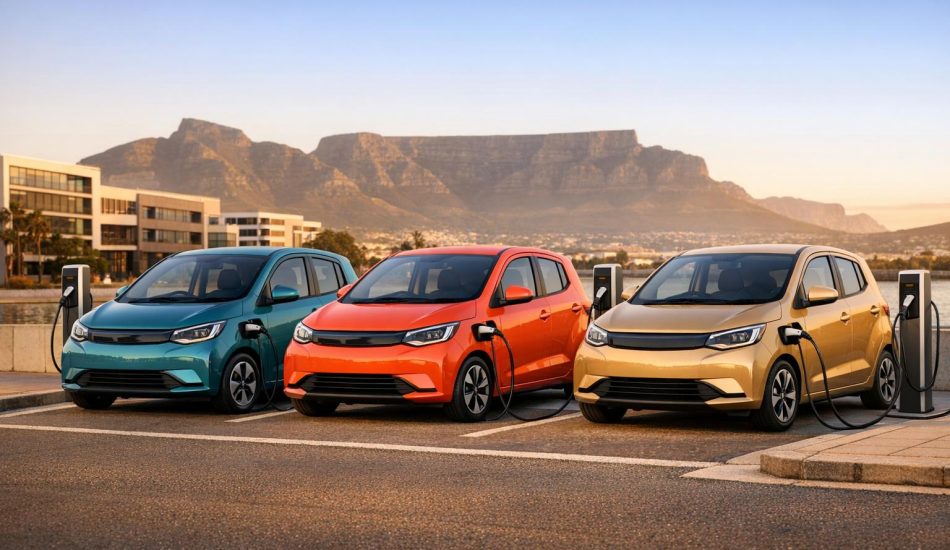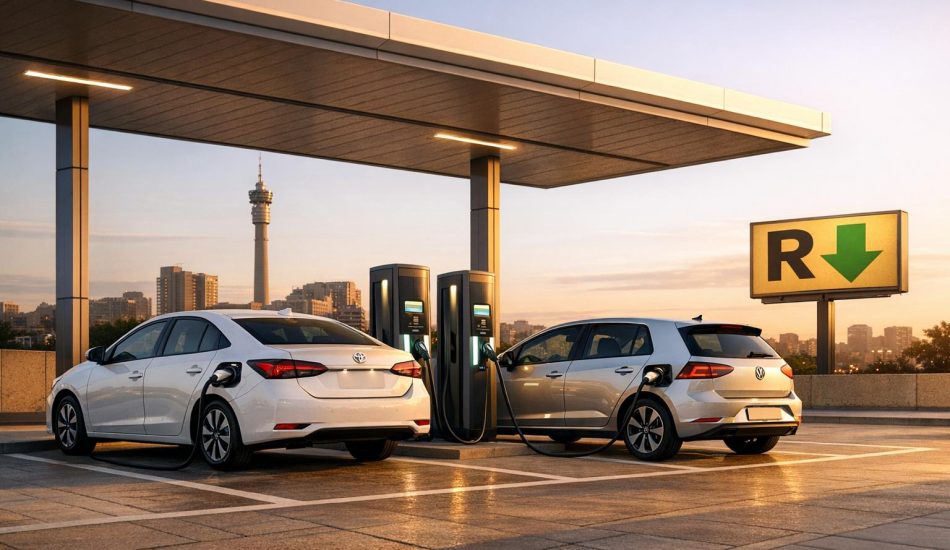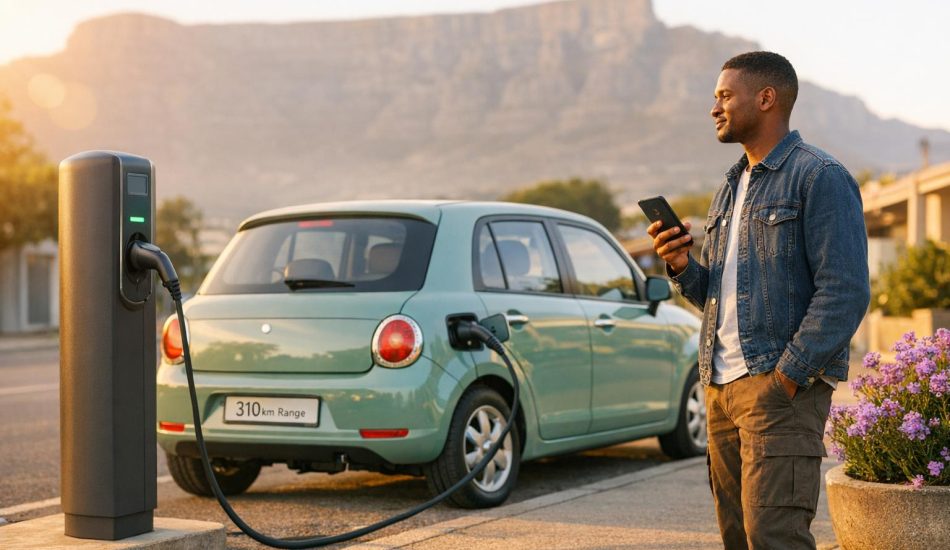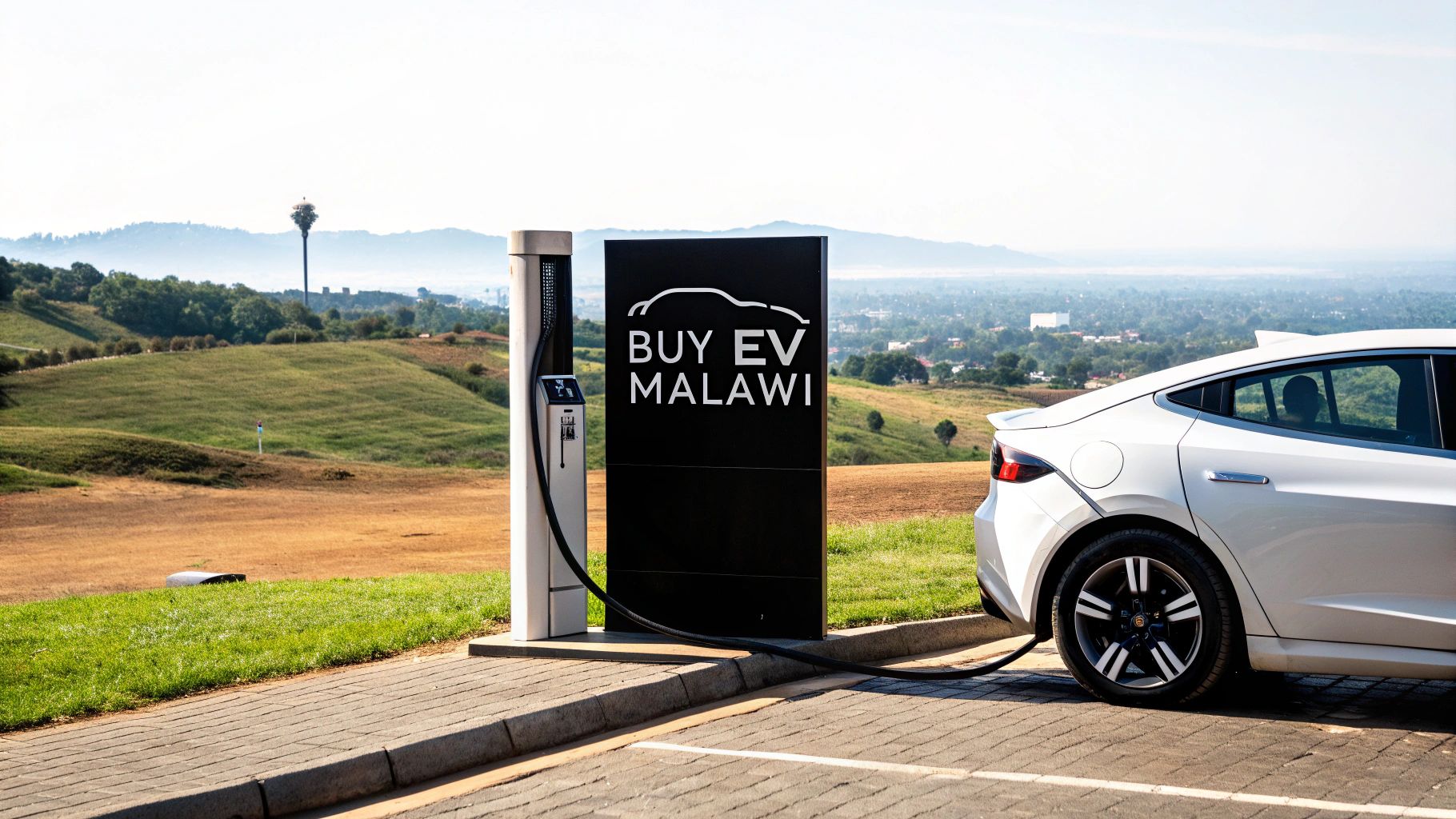
Thinking about owning an electric car in Malawi used to feel like a far-off dream, but it's quickly becoming one of the smartest, most practical moves you can make. The big reason? A major government push to cut the nation's massive fuel import bill has led to the complete removal of import duties on EVs. This policy is a direct win for your wallet, making this the perfect moment to switch to electric.
Why You Should Consider an Electric Car in Malawi Right Now
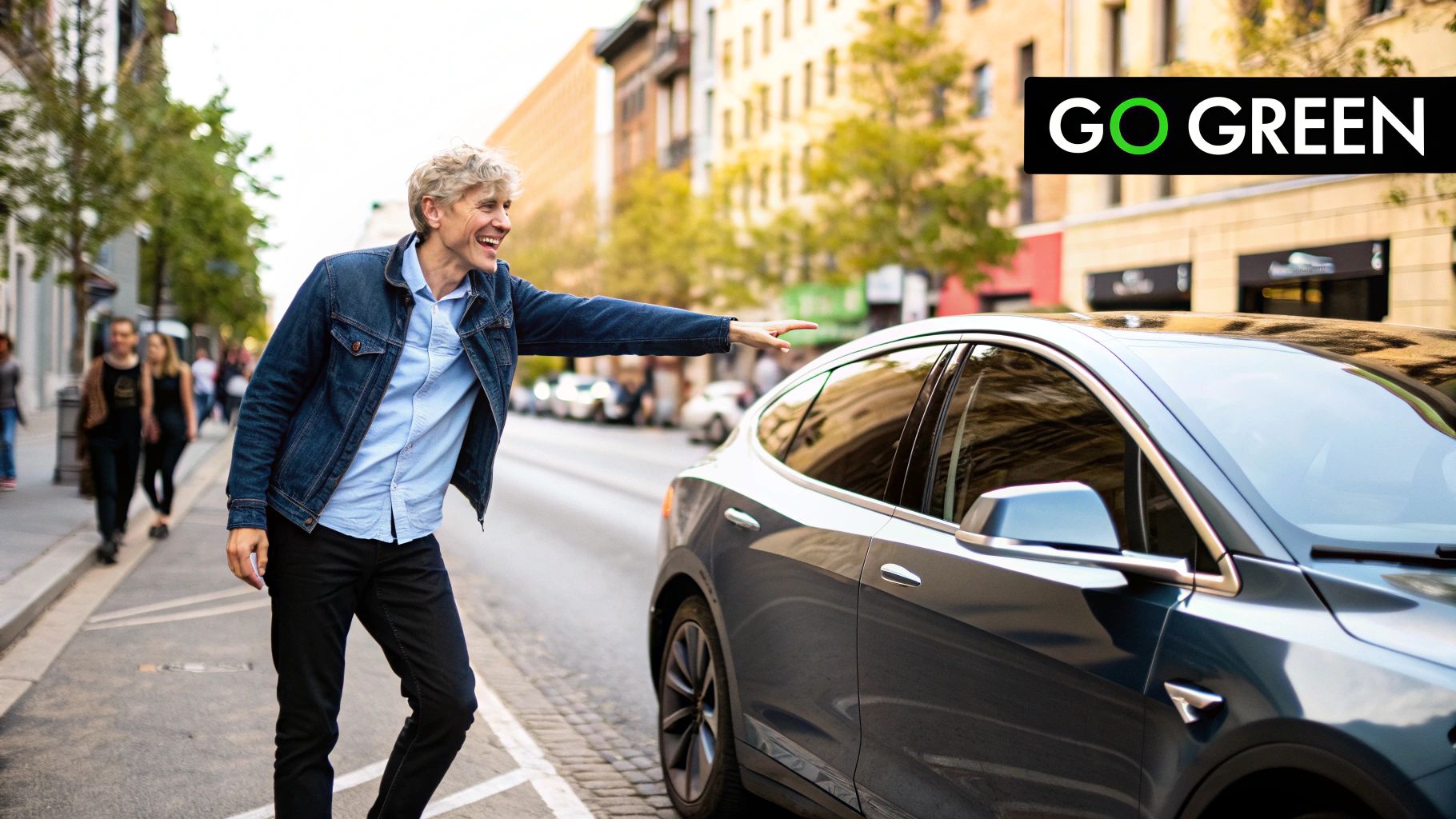
The timing for buying an electric car in Malawi has genuinely never been better. We're seeing a perfect storm of smart government policies, more and more vehicles becoming available, and a real understanding of the long-term savings. It's a rare opportunity for those ready to get ahead of the curve.
This isn't just about getting into a new piece of tech. It’s about making a financially savvy decision at a crucial time. The government has sent a clear message, and the private sector is responding, making EVs more accessible than they've ever been.
Government Incentives Are Too Good to Ignore
The single biggest factor fuelling this shift is the government's bold move on import taxes. In an effort to tackle its huge annual fuel import bill, Malawi has made bringing in an electric vehicle incredibly appealing.
Here’s what that means for you financially:
- Zero Import Duty: You won't pay the standard 25% import duty on any fully electric vehicle. This slashes the upfront cost right away.
- No Excise Tax: EVs are completely exempt from excise tax, which brings the final price down even further.
- Reduced VAT: While not gone entirely, the Value Added Tax on electric cars is often calculated more favourably than for their petrol or diesel counterparts.
This isn't some short-term promotion. It’s a deliberate, foundational policy designed to reshape Malawi's transport landscape for the long haul, aiming for a more sustainable and economically independent future.
The Market Is Young, but Growing Fast
Malawi's EV market is still finding its feet, but the signs of growth are strong, backed by both government action and private investment. In 2023, the country officially dropped import duties on both electric vehicles and their charging equipment. This was a direct response to the $600 million Malawi spends on fuel imports every single year.
This policy has already encouraged major players like Sky Energy Malawi to bring in popular models like the Tata Tiago EV and Citroën C3 EV. If you want to dive deeper into what's happening on the ground, you can discover more insights about Malawi's emerging EV market on ev24.africa.
What this all means is that you're not stepping into a void. An ecosystem of suppliers and supporters is building up quickly. By choosing to buy now, you’re positioning yourself at the very start of a major change, ready to reap the full benefits of these early incentives.
How to Choose the Right EV for Malawian Roads
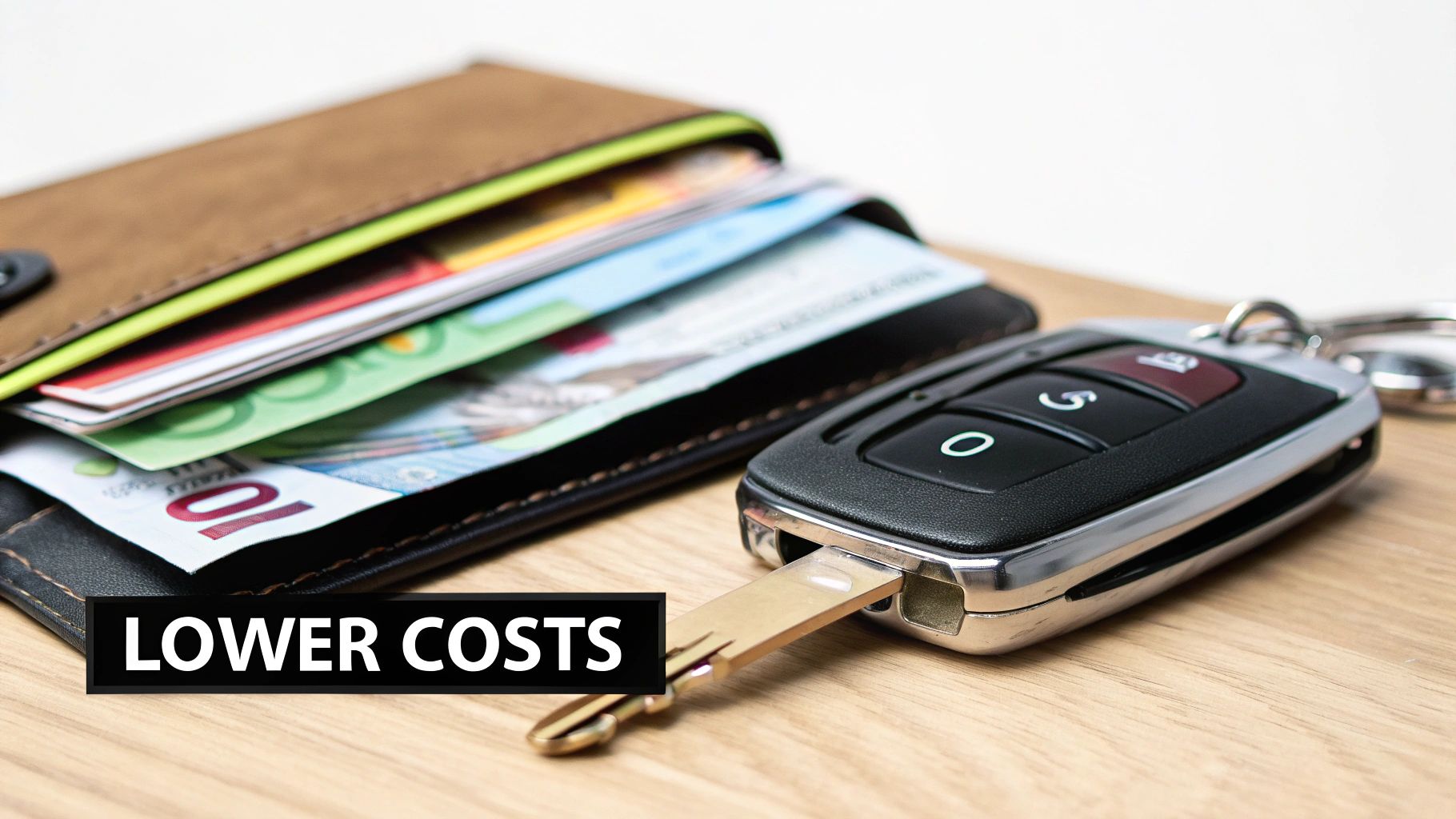
Finding the perfect electric car online can feel a bit overwhelming, but platforms like EV24.africa make it much simpler. Let’s cut through the technical jargon and focus on what really counts for driving in Malawi—your daily commute in Lilongwe, those family trips up to Mzuzu, and the reality of our local road conditions.
When you first decide to buy an electric car in Malawi, it’s easy to get fixated on the maximum range. While that number is important, it's just one part of the story. A much better approach is to think about your typical week and match the car's real-world capabilities to what you actually need.
Think Practical Range and Durability First
Take a moment to consider your daily driving. Are you mostly zipping around Blantyre, or do you often find yourself travelling between cities? For most people, an EV with a real-world range of 250-300 km, like a used Nissan Leaf or a BYD Atto 3, is more than enough for daily urban use and the odd longer journey, especially if you can charge at home.
Just as important is the car's build quality. Malawian roads can be tough, so you’ll want a vehicle with decent ground clearance and a robust suspension. Models like the Citroën C3 EV and Tata Tiago EV are becoming popular for a reason—they're built to handle varied terrain, making them a far more sensible choice than a delicate, low-slung performance car.
Key Takeaway: Don't chase the highest possible range figure on a spec sheet. Focus on a realistic range that covers 95% of your weekly travel and pick a vehicle with proven durability for our roads. This simple shift in mindset saves you money and ensures your EV is genuinely a good fit for your life.
Don't Overlook Charging and Climate Features
Charging speed is another thing you’ll want to think about. Most of your charging in Malawi will probably happen overnight at home with a standard three-pin plug, but having faster charging capability is a huge plus. Look for vehicles that support DC fast charging, even if public stations are still emerging. It future-proofs your car and makes those longer trips far less stressful.
Malawi’s climate also brings its own demands. An efficient air conditioning system is an absolute must, but remember it can reduce your EV’s range by 10-15%. A car with a battery pre-conditioning system will perform much more reliably in the heat, protecting both the battery’s health and your available range.
Comparing Popular EV Models for Malawi
To give you a better idea, here's a quick comparison of some popular models you can import. We've focused on the specs that matter most for drivers in Malawi.
| Model | Estimated Range (WLTP) | Battery Size (kWh) | Best Suited For | Charging Time (Standard AC) |
|---|---|---|---|---|
| Tata Tiago EV | ~250 km | 19.2 kWh | City commuting, budget-conscious buyers | 6-7 hours |
| Citroën C3 EV | ~320 km | 29.2 kWh | Families, mixed urban and rural driving | 8-9 hours |
| BYD Atto 3 | ~420 km | 60.5 kWh | Long-distance travel, higher performance | 9-10 hours |
| Nissan Leaf (40kWh) | ~270 km | 40 kWh | Reliable all-rounder, proven technology | 7-8 hours |
This table should help you see how different models stack up for different needs. Whether you need a small city runabout or something for the whole family, there's an EV that fits the bill.
For a deeper dive, our complete guide on choosing the right EV for your needs in Africa offers even more comparisons and insights.
One last tip: always insist on a full vehicle history and a battery health report, especially if you’re looking at a used model. Reputable platforms like EV24.africa provide these documents as a standard part of the service, giving you peace of mind that your car is ready for the road ahead.
Navigating the Import and Shipping Journey
You’ve found your perfect EV—now for the exciting part: getting it here to Malawi. The international shipping process can seem like a complex puzzle at first, but when you break it down, it's a series of clear, manageable steps. Working with a partner like EV24.africa takes the guesswork out of the equation, letting you focus on the day your car arrives.
First things first, let's talk paperwork. There are two documents that are absolutely critical for a smooth journey through customs. You'll need the Bill of Lading, which serves as your proof of shipment and title to the car, and the Commercial Invoice, which clearly states the vehicle's value. Think of these as your car's passport—without them, you're not going anywhere.
Choosing the Right Shipping Method
When it comes to getting your car on a boat, you generally have two solid options. Each has its pros and cons, so the right choice often comes down to your budget and how much protection you want for your vehicle.
- Roll-On/Roll-Off (RoRo): This is the go-to method for most people and for good reason. It's the most cost-effective way to ship a vehicle. Your car is simply driven onto a massive, specialised vessel (like a giant car ferry) and secured for the trip. It’s straightforward and gets the job done efficiently.
- Container Shipping: For this option, your EV is loaded securely inside a standard steel shipping container. It costs a bit more, but it offers superior protection from the elements and potential dings during transit. It's a great choice if you're importing a higher-value car or if you want to ship some personal items along with it.
We can walk you through the specifics of each and help you decide which method makes the most sense for your new car.
From the Seaport to the Malawian Border
Most vehicles heading to Malawi don't sail directly here. They typically land at major regional ports like Beira in Mozambique or Dar es Salaam in Tanzania. Once unloaded, your car begins its overland journey via a bonded carrier truck, heading straight for a Malawian border post like Mwanza or Dedza.
For many first-time importers, that overland trek from the port to the border is the most nerve-wracking part. This is precisely where having a professional clearing agent on your side makes all the difference. They handle all the cross-border logistics and paperwork, ensuring your car stays safe, secure, and on schedule.
This handy graphic shows just how simple it is to keep your EV charged and ready to go once it's here.
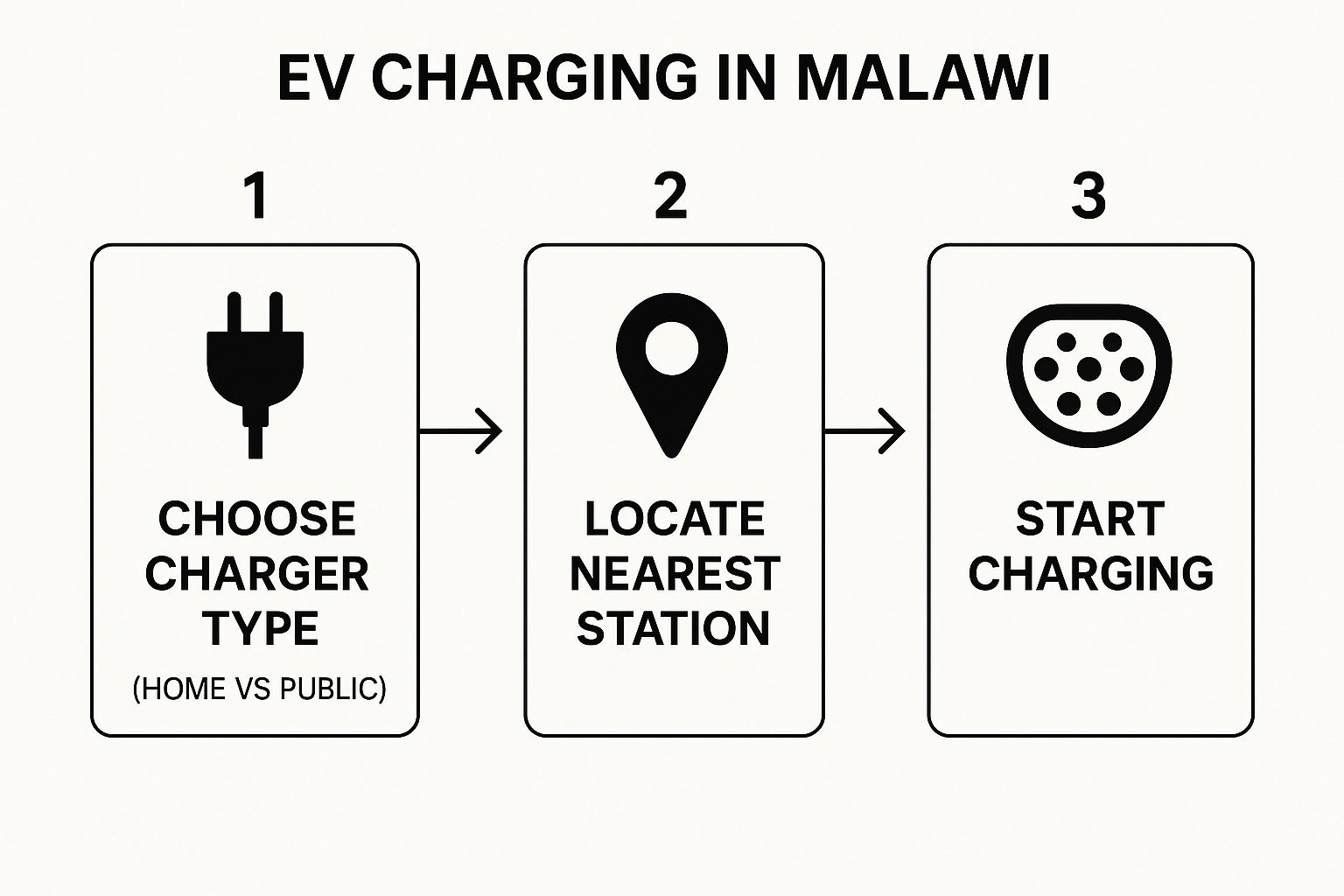
As you can see, daily charging is a simple, three-step routine that quickly becomes second nature.
So, how long does it all take? A good rule of thumb is to expect a transit time of 4 to 6 weeks from the time the car is loaded at the origin port until it arrives in Malawi. Throughout the entire process, you'll get tracking updates so you're never left wondering where your car is. By letting an experienced team manage these logistics, you can buy an electric car in Malawi and skip the headaches that come with coordinating a complex international shipment on your own.
Navigating Customs and Vehicle Registration
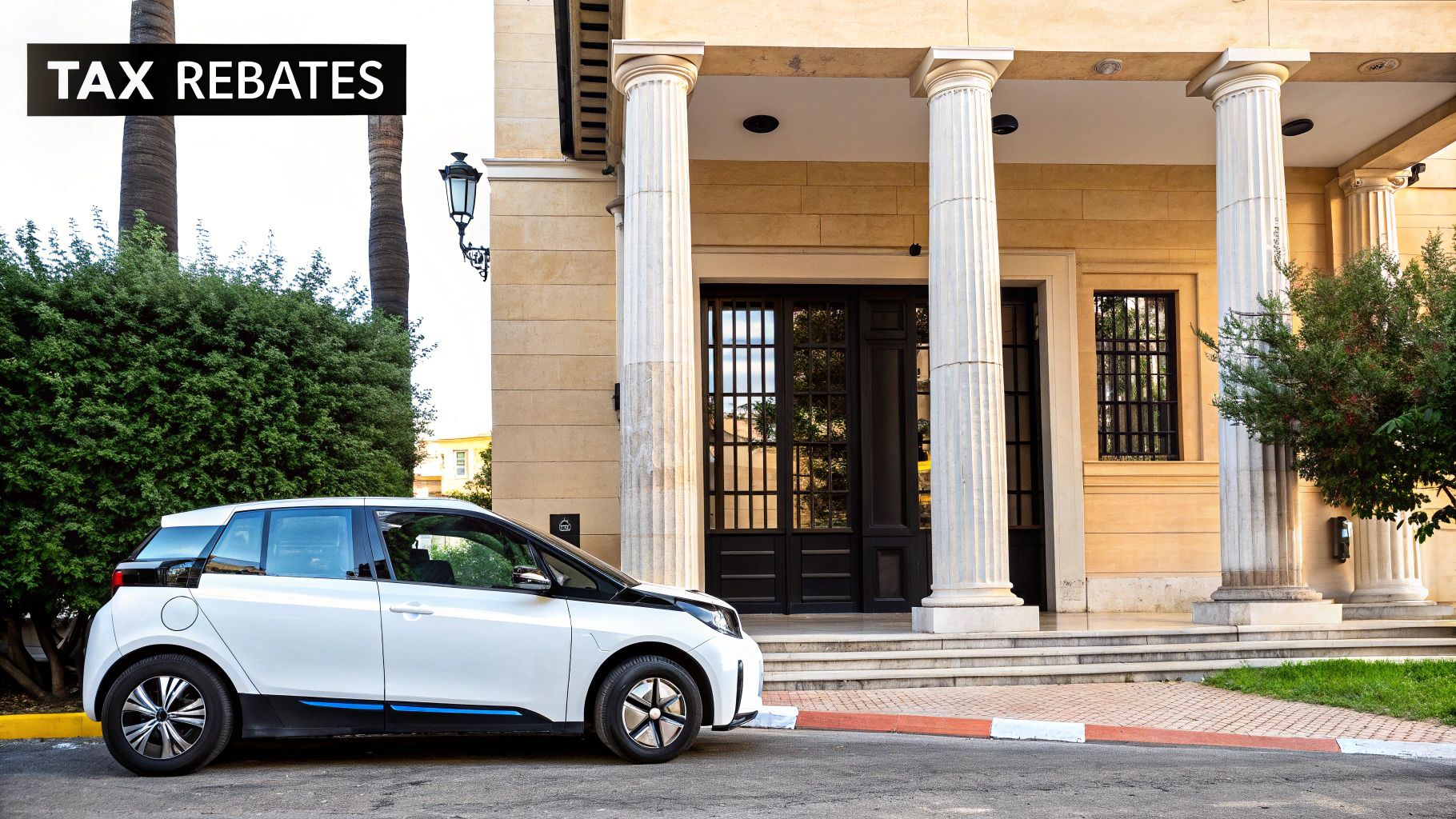
Your electric car has finally reached a Malawian border post like Mwanza or Dedza. This is the last major hurdle before you can actually drive it home, and honestly, this is where good preparation really shines. The whole customs and registration process can look a bit daunting from the outside, but it’s actually quite methodical if you know what to expect.
Everything at this stage revolves around the Malawi Revenue Authority (MRA). Their officers are the ones who will physically inspect your car, double-check all the paperwork, and make sure it meets the country’s import rules. This is the moment your EV officially becomes part of the Malawian system.
Clearing Your EV With the Malawi Revenue Authority
Your clearing agent is your best friend here. They'll be the one presenting the required documents to the MRA officials to prove ownership and the car's value. Getting this paperwork right from the start is absolutely critical—it’s the difference between a smooth process and frustrating, expensive delays.
Make sure you have these documents ready and in order:
- Bill of Lading: This is the official proof of shipment and your legal title to the car.
- Commercial Invoice: Shows the exact price you paid for the vehicle.
- Proof of Ownership: The original logbook or registration from the country it came from.
- Your Identification: A valid passport or your National ID card is a must.
MRA officers will carefully review these documents to confirm your vehicle is a 100% battery electric vehicle (BEV). This step is hugely important because it's what qualifies you for the government's fantastic tax breaks.
Here's the best part: fully electric vehicles currently have 0% import duty. Compare that to the standard 25% duty on petrol or diesel cars, and you can see the massive savings right away. This policy is a game-changer for making EVs affordable.
Even though you skip the import duty, you'll still need to pay a reduced Value Added Tax (VAT) and some minor processing fees. A reliable clearing agent should give you a clear, itemised breakdown of these final costs well in advance, so there are no nasty surprises at the border. For a deeper dive into the numbers, check out our complete guide on Malawi's EV import regulations for 2025.
Getting Your Malawian Number Plate
Once the MRA is satisfied and you've settled all the fees, they will issue a Customs Clearance Certificate (CCC). This document is your golden ticket to the final step: getting the car registered.
With the CCC in hand, you or your agent will head over to the Directorate of Road Traffic and Safety Services (DRTSS).
At the DRTSS office, you’ll fill out the registration forms and hand over your clearance documents. They'll perform one last inspection to confirm the car is roadworthy. After that, you'll be issued with your official Malawian documents:
- A brand new Malawian number plate.
- The vehicle registration certificate (the new logbook).
- A Certificate of Fitness (COF).
And that's it! The journey that started with a search on EV24.africa is complete. Your new electric car is now fully registered in Malawi and ready to hit the road. It might seem like a lot of steps, but by following them methodically, you’ll navigate the process with confidence.
Getting into the Groove: Your New Life with an EV
Once you’ve got that shiny new Malawian number plate on your electric car, you’ll find yourself settling into a new, much quieter routine. The first thing on everyone's mind is always charging. Let go of any preconceived notions you have about needing high-tech charging stations; the reality of daily EV life in Malawi is refreshingly straightforward.
Think about your typical day: commuting to the office in Blantyre, picking up the kids from school, or just running errands around Lilongwe. For the vast majority of these trips, you'll probably never even think about a public charger. Why? Because your new "petrol station" is right at home.
Home Charging is Your New Best Friend
Most of the time, all you'll ever need is the standard wall socket in your garage or driveway. Just plug your car in overnight, and you're good to go. It’s a simple habit that completely replaces those weekly trips to the fuel station.
Every modern EV comes with a portable charger that fits a normal three-pin outlet. It honestly is as easy as charging your phone—plug it in when you get home, and by the time you wake up, you’ve got a full battery.
This is more than enough for the average daily drive in Malawi, which is usually well under 50 kilometres. You can get a full rundown on setting this up in our guide on how to charge your electric car at home in Africa.
What About Longer Trips?
Okay, so home charging covers your daily needs. But what happens when you need to travel from Lilongwe to Blantyre? This is where the growing public charging network comes in. Inter-city travel is becoming more practical by the day.
The government and private sector are actively building out the infrastructure, with plans for ten new charging stations by 2031 along key routes connecting Lilongwe, Blantyre, Zomba, and Mzuzu. You can already find chargers in key spots like:
- Lilongwe City Centre
- Blantyre's Central Business District
- Mzuzu Mall
- Select TotalEnergies fuel stations
You can track the progress and discover more about Malawi's EV infrastructure plans on ev24.africa.
The bottom line is this: when you buy an electric car in Malawi, you're not just getting a car for today. You're investing in a way of getting around that will only get easier and more convenient as this network expands.
And perhaps the best part? The sheer lack of maintenance. Say goodbye to oil changes, spark plugs, and finicky exhaust systems. Your main jobs will be keeping an eye on your tyres, brakes, and washer fluid. It’s a simpler, cheaper, and altogether more pleasant way to own a car.
The Real Savings of EV Ownership in Malawi
When you first start looking, the sticker price is what everyone focuses on. But the real story of owning an EV in Malawi unfolds long after you drive it home. Choosing to buy an electric car in Malawi is less about buying the latest tech and more about making a smart financial move that pays you back month after month.
The most obvious win? You can finally wave goodbye to the fuel pump. For good.
In a country where fuel is imported and prices can swing wildly, petrol and diesel costs are a constant headache for any household budget. Switching to an EV swaps that unpredictable expense for the much more stable, and lower, cost of electricity from ESCOM. Suddenly, your biggest transport cost becomes just another manageable utility bill, freeing up thousands of Kwacha every month.
Your Purchase Has a Ripple Effect
The benefits don't just stop at your bank account. Electric vehicles are a genuine solution to one of Malawi’s most stubborn economic problems: the constant struggle with fuel budget shortages.
This isn't just an abstract economic issue; it directly affects public services. A recent fiscal analysis showed just how starved our essential sectors are for fuel. Education gets a tiny 1.74% of its budget for fuel, and for health, it's a shocking 0.85%. You can read the full research on these fiscal challenges to see the bigger picture.
Every single EV that hits the road chips away at the national demand for imported fossil fuels. This frees up precious foreign exchange that can be redirected to where it’s needed most—like hospitals and schools. Your personal choice helps build a stronger Malawian economy.
Lower Running Costs Mean More Money in Your Pocket
Fuel is just the beginning of the savings. Electric vehicles are just built simpler than petrol or diesel cars, and that translates directly to far less maintenance.
Think about all the regular upkeep a standard car needs:
- Oil changes: Gone. You'll never have to worry about this messy, recurring expense again.
- Complex engine bits: No spark plugs, fuel filters, or exhaust systems to fail or replace.
- Fewer moving parts: Without pistons, valves, and belts whirring away, there are simply fewer things that can break down.
Honestly, your main maintenance tasks boil down to checking your tyres and brakes—and even brakes tend to last longer on EVs because of regenerative braking. This means fewer trips to the mechanic and a much more predictable, lower cost of ownership year after year. It's a decision that truly pays for itself.
Ready to see these savings for yourself? EV24.africa handles the entire process for you—from finding the right EV to importing and registering it.
Explore our curated selection of EVs and start your journey today at EV24.africa


